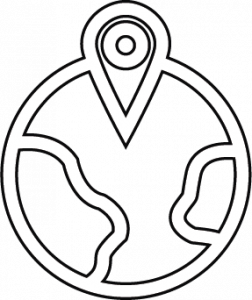Conversion Rate Optimisation, also called CRO, often sounds mysterious to many. Especially to those who may not be in the world of digital. But here at Making Science, we believe it is imperative. That’s why we decided to write a guide. This guide will be published over the next few weeks, so keep an eye out for upcoming posts.
To understand Conversion Rate Optimisation, we must first understand a conversion.
Part 1: What is a Conversion?
Simply put, conversion refers to the moment when a visitor completes a specific goal on a website. Particular plans might include:
- Purchases – Booking a hotel, or a pair of shoes online
- Newsletter signups – Receive up-to-date news or information
- Shopping cart adds – I’ll come back later. I need to think about this purchase a little more
- Form submissions – I’d like to learn more about your school courses.
- App downloads
- Form/document downloads – I need more information about researching something.
When the user takes action, that’s considered a conversion. Conversions are directly related to the goal or the purpose of the website.
So what exactly is Conversion Rate Optimisation (CRO)?
Wouldn’t it be great if we put up a website and everyone who visited bought something or we succeeded with our website goal? Absolutely! Well, Conversion rate optimisation helps us do that.
CRO refers to increasing the percentage of Conversions on a website, mobile device or app. Turning visitors into leads and leads into customers.
The idea behind conversion rate optimisation is to help you understand how users move through your website, what actions they take, and what stops them from completing your site’s goals.
How do you calculate Conversion to measure success?
We calculate conversion to help us understand how many people visiting your site convert into paying customers.
The formula is: Total Users That Converted / Total Users That Visited Our Website x 100
EXAMPLE:
- I had 5,000 users buy beer on my site this month (caught your attention, didn’t I)
- But I had 10,000 visitors to my site this month
- x 100 (to get a percentage)
5,000 / 10,000 x 100 = 50% Conversion Rate of Beer!
Why is Conversion Rate Optimisation important
At this point, you should understand the basics of CRO. We know that when we have found an opportunity on our website, we should ensure it’s both data-driven and user-centric. At this point, we form a hypothesis and should test it. It is the same as when a doctor aims to determine his patient’s heart rate, blood pressure or how tired their body feels under certain levels of physical strain or activity. Our take on stress testing with Making Science is about ensuring your team, the tool you are using, and your organisation can pass a stress test! Knowing your limits will help you figure out how to plan.
By introducing conversion rate optimisation into your business, you can quickly improve conversion rates on your website. You have facts that show you what to test, where and how.
How to get started with Conversion Rate Optimisation
Start by ensuring that you understand the basics of conversion rate optimisation. Be sure you have a conversion rate optimisation tool and, of course, a strategy. And, always be testing! Testing allows you to learn.
Talking to us at Making Science can also help you get started! Start improving your conversion rate today by visiting makingscience.co.uk/contact.
Stay tuned for new editions 2-6 in the coming weeks.







 Cookies configuration
Cookies configuration